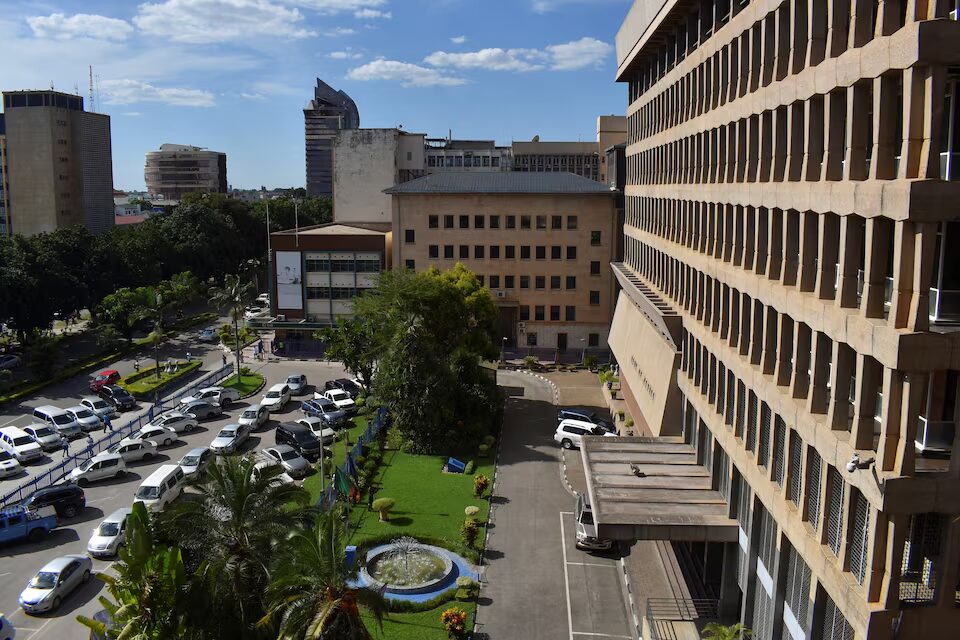
Friday, 30th May 2025

Par inAfrika Reporter
Libya has officially cemented its place within Africa’s premier trade-focused financial institution, the African Export-Import Bank (Afreximbank), by acquiring shares and attaining full shareholder status. The development marks a decisive step forward for the North African nation as it repositions itself at the heart of continental trade and economic integration. On May 13, 2025, Libya submitted its share subscription payment, securing both its status as a participating state and a shareholder in the multilateral bank—an affirmation not just of its return to the continental economic fold, but of its readiness to influence it.
This milestone comes just seven months after Libya acceded to the Bank’s Establishment Agreement in October 2024, becoming the 52nd African country to do so. With this, Afreximbank inches closer to universal continental coverage, strengthening its legitimacy as a truly pan-African financial institution. Libya’s entry adds not only symbolic weight but strategic value to Afreximbank’s growing mission—advancing Africa’s integration agenda through bold investments and robust trade facilitation.
For Libya, joining Afreximbank is more than a diplomatic gesture. It is a calculated move to reclaim its economic agency and strengthen its infrastructure through pan-African collaboration. The Bank has already earmarked several sectors for intervention in Libya, including oil and gas, infrastructure development, and manufactured goods exports. The roadmap includes projects of regional significance such as oil pipelines and road linkages with Egypt, as well as cross-border electricity transmission systems involving Tunisia and Algeria. These are not mere connectivity upgrades—they are lifelines for Libya’s reconstruction and levers for regional influence.
Afreximbank President and Chairman of the Board of Directors, Professor Benedict Oramah, welcomed Libya’s accession and shareholding as a testament to the strength and credibility of the Bank’s mandate. He emphasized that Libya’s investment enhances the Bank’s capital base while deepening its reach across North Africa. According to Prof. Oramah, “Libya’s shareholding in Afreximbank puts the Bank in a strong position to support the government’s reconstruction efforts while also helping to deepen its regional connectivity.” The projects currently under consideration not only serve Libya’s domestic rebuilding agenda but anchor the country as a critical player in North Africa’s economic corridor.
Beyond infrastructure, Libya’s participation is poised to drive diversification efforts by expanding its footprint in continental trade. In the post-conflict environment, this could mean a transition from an economy traditionally centered on hydrocarbons to one defined by industrial output, regional logistics, and a revitalized private sector. It is a strategic bet on integration, at a time when Africa’s economic resilience increasingly depends on the effectiveness of its internal trade links.
For the Libyan government, the moment carries profound significance. Dr. Khaled Al-Mabrouk Abdullah, Minister of Finance, described the share acquisition as a historic achievement and a turning point in Libya’s economic restoration. He credited Afreximbank’s leadership for facilitating Libya’s full participation in the institution and praised the Bank’s consistent engagement, especially under Prof. Oramah’s tenure. “The acquisition of shares in Afreximbank solidifies Libya’s position as a full member state and shareholder in this esteemed multilateral African institution,” said Dr. Abdullah, adding that the development represented “a critical step forward in Libya’s journey towards greater economic integration within the African continent.”
The alignment between Libya’s national interests and Afreximbank’s continental vision is evident. Libya seeks partners that can deliver capital, capability, and credibility. Afreximbank, meanwhile, thrives on expanding its influence through partnerships that drive value at scale. For both parties, the collaboration promises mutually reinforcing outcomes—financial empowerment for Libya and greater operational presence for Afreximbank across North Africa.
Dr. Abdullah further noted that the partnership opens up a pipeline of new opportunities for Libya, especially in terms of access to trade finance, investment facilitation, and technical expertise. He reiterated the country’s commitment to becoming a reliable actor in intra-African trade and emphasized the importance of regional solidarity in rebuilding post-conflict economies. “We eagerly anticipate leveraging the Bank’s expertise and resources to support our national economic agenda and to contribute effectively to the advancement of intra-African trade and continental integration,” he said.
Afreximbank’s own trajectory continues to reflect Africa’s ambition to take charge of its economic destiny. With a growing portfolio that includes financing for infrastructure, industrial parks, trade corridors, and export development, the Bank has positioned itself as more than a financier—it is a central actor in reshaping the economic geography of the continent. Libya’s entrance signals that even nations in recovery see Afreximbank as a vehicle for their resurgence.
As Africa navigates complex global headwinds—from climate change and geopolitical shifts to digital transitions and commodity volatility—institutions like Afreximbank are becoming indispensable. They represent African solutions to African challenges, blending finance with a strategic sense of purpose. Libya’s re-emergence, through such an institution, carries a message: reconstruction, when paired with integration, is not only possible—it is transformative.
With Libya now firmly inside Afreximbank’s shareholder circle, the stage is set for a deeper recalibration of North Africa’s place in continental trade and investment flows. It is a comeback story, but also a forward-looking play—where the past gives way to a new era of cooperation, capability, and continental vision.


